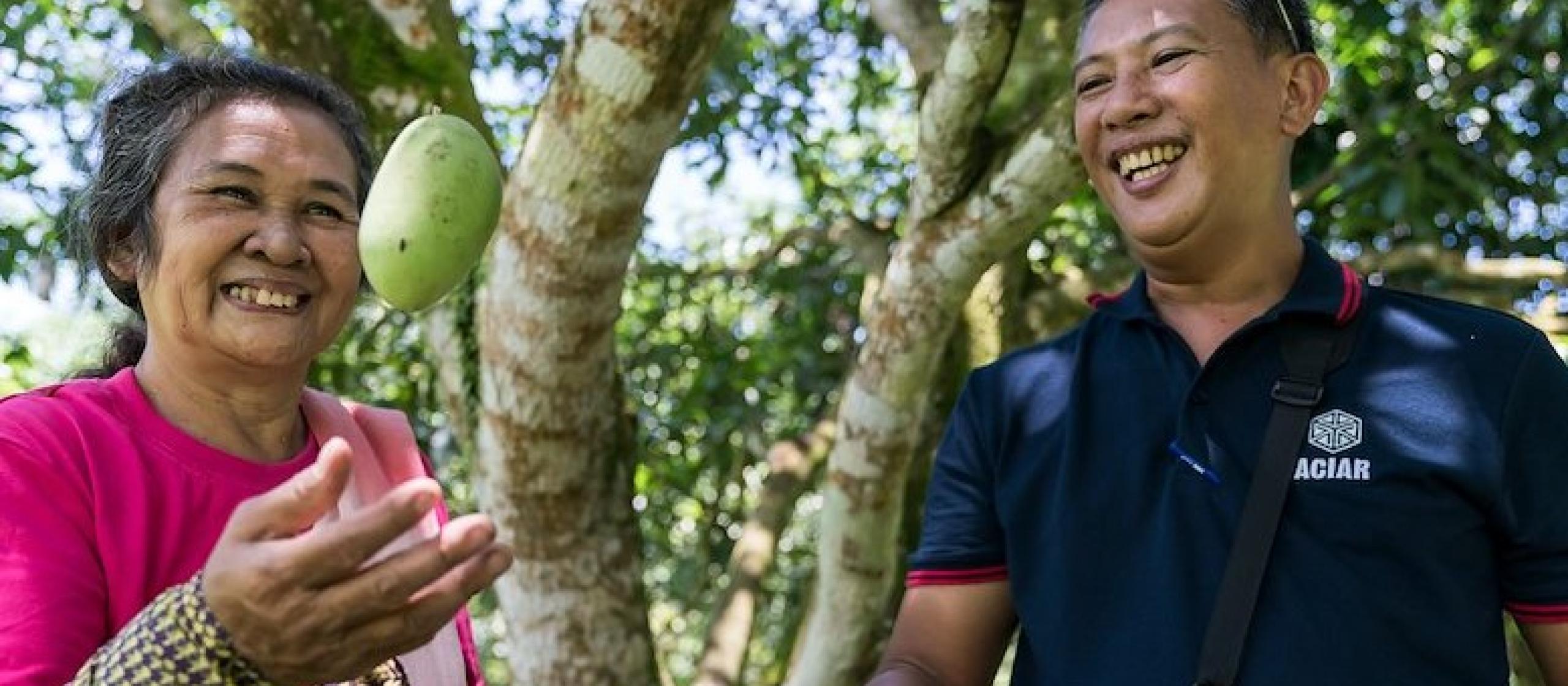- HomeHome
-
About ACIAR
- Our work
- Our people
-
Corporate information
- ACIAR Audit Committee
- Commission for International Agricultural Research
- Policy Advisory Council
- Agency reviews
- Executive remuneration disclosure
- Freedom of information (FOI)
- Gifts and benefits register
- Information publication scheme
- List of new agency files
- Contracts
- Legal services expenditure
- Privacy impact assessment register
- Commonwealth Child Safe Framework
- Benefits to Australia
- Careers
- 40 years of ACIAR
-
What we do
- Programs
- Cross-cutting areas
- Resources
- Where we work
-
Funding
- Research projects
- Fellowships
-
Scholarships
- John Allwright FellowshipScholarships to study in Australia for ACIAR partner country scientists to have Australian postgraduate qualifications
- ACIAR Pacific Agriculture Scholarships and Support and Climate Resilience Program
- Alumni Research Support Facility
- Publications
- News and Outreach
Date released
23 July 2018
Over 588 growers and contractors have benefited from training in mango tree management and pest control methods using industry best practice.
Mangoes are an economically important crop in the Philippines and Australia. In the Philippines, around 860,000 tonnes of mangoes per year are produced from 187,000 hectares, with 73% of farms operated by 2.5 million smallholder farmers. Declining production yields and poor quality of fruit caused by pests and diseases have led to unproductive, poorly nourished trees and high input costs of pesticides. Taking a holistic approach, ACIAR research aims to improve fruit quality through the development and application of integrated crop management.
Managing the incidence of insect pests and both pre- and post-harvest fungal diseases has been crucial, as has improving fruit quality, size and yields by optimising nutrition and canopy management. The project led by Dr Ian Newton, ‘Research and development of integrated crop management for mango production in the southern Philippines and Australia’, has collaborated with four universities/educational institutions and two agricultural organisations in the Philippines, and has strong links to two other ACIAR projects that have researched mango post-harvest processes (HORT/2012/098) and value chains (AGB/2012/109).
So far, the R&D project has developed an understanding of the biology, ecology and control of mango thrips (an adult thrip is an insect which is dark brown to black and just over one millimetre long) to enable farmers to better manage them through more accurately timed insecticide applications, management of insecticide resistance, removal of alternative host plants and the potential use of trap crops to attract insects away from valuable crops.
A nation-wide survey helped to identify smallholder mango farmer practices. Best practices have now been developed from the responses and combined with research outcomes into an integrated crop management package, and adopted in farmer field schools and by participating farmers. So far, the project has reached 588 growers, contractors and extension staff with training in mango tree nutrition, and canopy and pest management.
Field trials assessing the effectiveness of different bio-fungicides, plant growth regulators and hot water dips have shown potential for controlling blossom blight fungal disease and post-harvest diseases. The project continues to test different bio-fungicides and endophytic fungi for pre- and post-harvest control of anthracnose fungus. Research is also continuing into the population dynamics of mango cecid flies and their natural enemies.
Learn more about the ACIAR project Research and development of integrated crop management for mango production in the southern Philippines and Australia via ACIAR's website.



